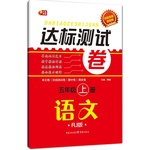题目内容
Why doesn’t Tom cross the rope?
A.Because it’s dangerous.
B.Because it’s closed.
C.Because it’s too high.
练习册系列答案
 星级口算天天练系列答案
星级口算天天练系列答案 芒果教辅达标测试卷系列答案
芒果教辅达标测试卷系列答案
相关题目
题目内容
Why doesn’t Tom cross the rope?
A.Because it’s dangerous.
B.Because it’s closed.
C.Because it’s too high.
 星级口算天天练系列答案
星级口算天天练系列答案 芒果教辅达标测试卷系列答案
芒果教辅达标测试卷系列答案